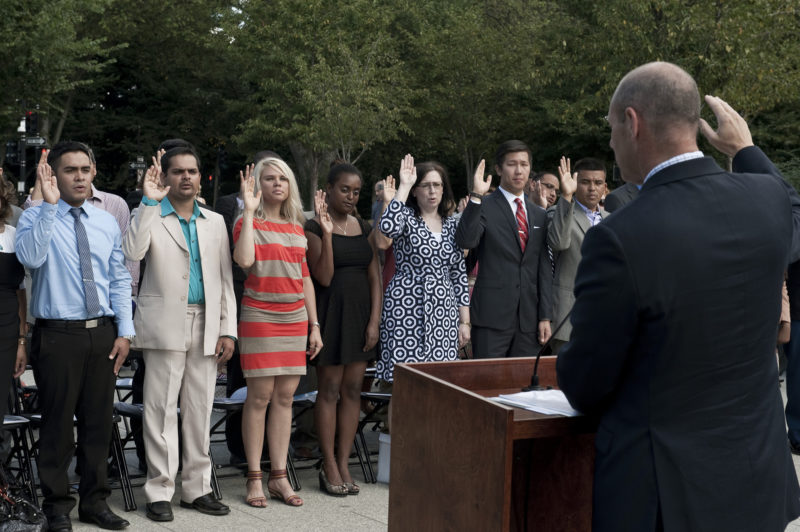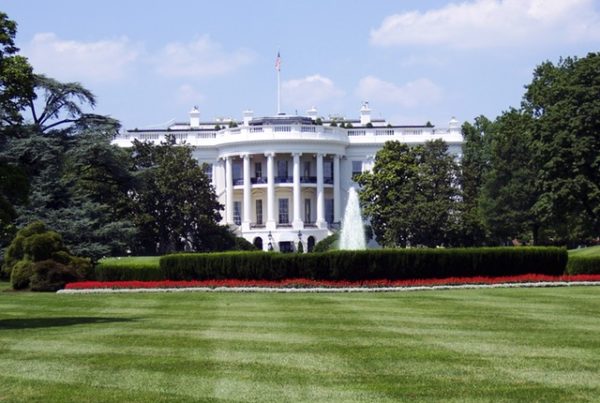President Donald Trump called for a “complete shutdown of Muslims” entering the United States during his campaign. He falsely claimed the U.S. has no system to vet refugees seeking to enter the country. He’s also championed creating an “extreme vetting” process for any and all immigrants and visitors to the U.S. – mapping out a three-pronged approach to immigration.
But the U.S. refugee vetting process and immigrant naturalization laws are complicated. Refugees undergo lengthy interviews, biographic security checks, screenings by U.S. security agencies and fingerprinting. Immigrants hoping to become naturalized can be admitted because they have family members living in the country, an employer petitions for them or as part of the Diversity Visa lottery.
Trump’s plan, as he has laid out so far, would be to temporarily suspend immigration from places with a history of exporting terrorism.
Ruth Wasem, with the University of Texas at Austin’s LBJ School of Public Affairs, says parts of Trump’s proposed changes would be straightforward, and others less so.
For one, the government already has a list of state sponsors of terrorism.
“That, going forward, would be pretty straightforward … in terms of those countries,” she says. “Now some of them on the list might be countries where it would be a little controversial. For many years, Cuba was considered a country of state-sponsored terrorism. … Some of those countries may cause other issues that they might want to pull from the list for other reasons.”
Wasem that the rest depends on how the new secretaries of the state department and Homeland Security where to put the burden of proof to what countries stay on the list.
“Right now [the government has] elaborate systems in place,” she says. “They do extensive vetting of immigrants and prospective immigrants and visitors. So if they said they couldn’t do it, they weren’t up to the job, that may not look well upon the agencies.
Trump has also said he would limit admission to those who share the values of the United States. Wasem says the U.S. has ideological screens in place, but nothing based on the values of a person.
“A values test is not something we have done before,” she says. “What would be analogous is when someone takes the oath of allegiance to be a U.S. citizen. Then they pledge their loyalty to the government and the principals of the United States.”
To expect visitors to also ascribe to the nation’s values is unprecedented, Wasem says. A values test would not be something that could be accomplished easily.
Wasem says the biggest question is what Trump means by “values”.
Written by Beth Cortez-Neavel.
















